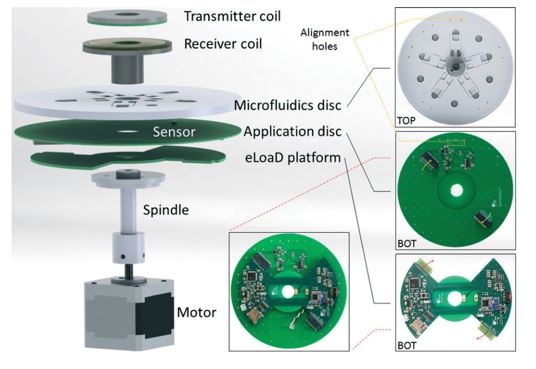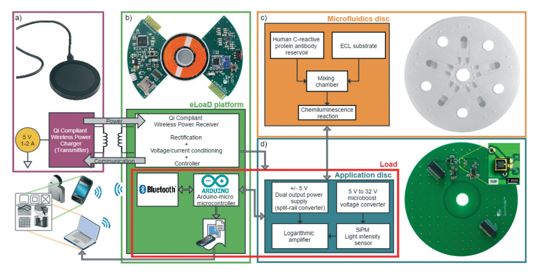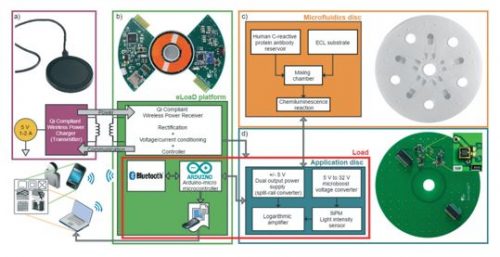eLOAD -centrifugal microfluidics with modular embedded systems for easy operation and maintainability at the POC
Poster Abstract
Dario Mager
In resource-limited settings, for example in parts of India and Africa, access to everyday commodities, such as clean water and electricity, is restricted. This makes healthcare in the developing world vastly different from the experiences of high-income countries. In these low-infrastructure settings, exposure to difficult environmental conditions is commonplace, including high levels of humidity, heat and dust. Electricity is often intermittent or non-existent, compounding the harshness of the environment and posing significant challenges for equipment and data connectivity. In addition, lack of trained staff makes it hard to provide a high standard of diagnostic testing and throughput of patients.
The need for medical solutions at the Point-of-Care is an obvious challenge without question and many approaches are made to help solving these issues. Nevertheles many of the proposed solutions orientate themselves at the conditions in rich countries (both with respect to the lab conditions as well as the availability of trained personal). The reality at the PoC is that the permanently available personnel is often purely trained (most others leave to a better job) and service technicians need to fly in from another country. Also the operation of a device which’s cost equivalents the years income of half the village were it is used is morally questionable.
We present an approach – the eLoaD – that is based on the wide available Arduino microcontroller, that allows to automate centrifugal microfluidics (or Lab-on-a-Disc) in many important aspects. It allows the operation of these tests using common and hence cheap microelectronic sensors. The integration of embedded systems allows automation both in diagnostic operations as well as in maintenance, reducing the need for highly trained personnel. The device consists of a generic part containing the energy handling, the Arduino, the SD-card, and the Bluetooth communication. On the other side it has an ApplicationDisc that caries the sensors and actuators [1] and is design for a specific application. Following this approach feedback controlled arbitrary switching of fluids on the spinning disc [2] as well as a chemiluminescence based ELISA test could be performed [3]. The presented system is cheap and highly flexible, yet it is highly sensitive.
- Torres et al., Biosens Bioelectron. 2018;117:464–73.
- Torres et al. Biosens Bioelectron. 2018;109:214–23
- Torres et al., Lab Chip. 2016;16(20):4002–11.


